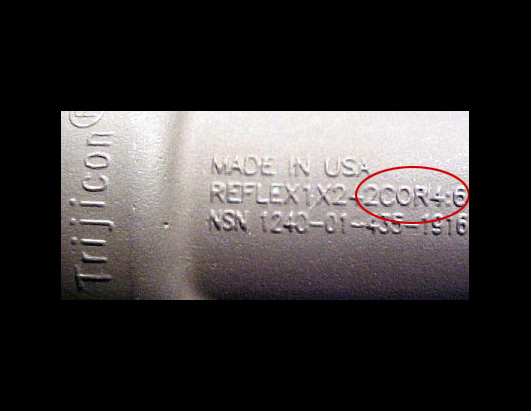Every word of God is flawless; he is a shield to those who take refuge in him. Do not add to his words, or he will rebuke you and prove you a liar.
—Proverbs 30:5-6, NIV
The canon of scripture—that is, the official list of what’s in the Bible—is not revealed to us by any saying of Jesus, nor does scripture itself contain any list. The canon of scripture is determined by the Church, and there are differences among the various church bodies.
I have to cover this material in several parts:
Before We Begin…
But first a little clarification, because the word “apocrypha” has a second, relatively obscure scholarly use, and we don’t want to get confused. Sometimes you’ll see a reference to the so-called “New Testament Apocrypha,” which is a general term for ancient Christian religious writings in the form of gospels, acts, and epistles that no one in the ancient church ever thought were scriptural. That’s not the topic here.
The historic Church never suppressed or destroyed religious writings it deemed heretical. Some ancient Christian writings, both orthodox and heretical, have been lost, either through happenstance, neglect, or lack of popularity. It wasn’t until the middle ages, and only in the west, that anyone burned heretics or books.
The Apocrypha that we are discussing here consists of books whose canonical status in the Old Testament has come under criticism. The Apocrypha is also called “the deuterocanonical books.” (You can find out the difference between the terms ‘apocrypha’ and ‘deuterocanonical.’)
What was in the ancient Jewish Hebrew Bible?
The Hebrew Bible is divided into three parts, Torah (the Law), Nevi’im (the Prophets), and Ketuvim (the Writings) in Hebrew. Sometimes the Hebrew Bible is called the Tanakh, which is an acronym of Torah, Nevi’im, and Ketuvim. In the New Testament era, the third portion, the Writings, were still in the process of becoming canonical—though pretty far along—so the New Testament calls it either “the Law, the Prophets, and the Psalms” or the “Law and the Prophets.”
- The Law
- The Law contains the five books of Moses. This is the earliest part that was recognized as Holy Scripture. For Sadducees and Samaritans, that’s all there is to the Bible.
- The Prophets
- The Prophets include what we think of as the historical books, the twelve minor prophets, and the major prophets, except Daniel. That is: Joshua, Judges, Samuel, Kings, Isaiah, Jeremiah, Ezekiel, Hosea, Joel, Amos, Obadiah, Jonah, Micah, Nahum, Habakkuk, Zephaniah, Haggai, Zechariah, and Malachi.
- The Writings
- The Writings contain all the other books, which are: Psalms, Proverbs, Job, Song of Songs, Ruth, Lamentations, Ecclesiastes, Esther, Daniel, Ezra-Nehemiah, and Chronicles. In general, they are in the order of writing.
The modern Jewish Bible is the same as the ancient Hebrew Bible.
What was in the ancient Jewish Greek Bible?
About 300 years before the Christian era, the Jews in Alexandria, Egypt, undertook a translation of the Bible (which we call the Old Testament) into Greek. About 70 translators worked on it; hence it is called the Septuagint, from the Latin word for “seventy.” The Temple in Jerusalem furnished the Hebrew scrolls that they used for the translation. Since it is the oldest translation of the Old Testament, translators consult it today for places where it isn’t clear which vowels should go between the consonants in the Hebrew text.
The Septuagint translators gave the books of the Bible Greek names and put them in a different order, categorizing them as Law, history, writings, and prophecy.
So far we have been talking about two Jewish Bibles that differed slightly in content: the Hebrew Bible (the Palestinian canon) and the Greek Bible (the Alexandrian canon), which had a few more books than the Hebrew Bible. The reason they differed is that the third portion (the Writings) were still in the process of becoming canonical.
Christians were so adept at using the Septuagint to make converts that the rabbis decided very early in the Christian era that synagogues would thenceforth only use Hebrew scrolls. Jews have not used the Septuagint for nearly 2,000 years, even though it was a Jewish translation of the Bible. Many lay Christians accused the Jews of editing the Hebrew text to make it less messianic. (See Justin Martyr’s Dialogue with Trypho, chapters 71-73.) This is hardly possible, because the Jews have too much respect for the text to do such a thing. The motive for this accusation was mainly emotional: Christians were under persecution because the rabbis had disowned the church as a Jewish sect, making it an illegal religion; therefore, Christians were quick to accuse the Jews. The ‘changes’ are interpretive and came from the translators who lived a couple of centuries before Christianity.
The Septuagint was the canonical Old Testament of the ancient church, and has remained so in Orthodox churches to this day, which explains its presence here in the Orthodox Study Bible.
The Orthodox Study Bible uses an English-language translation of the Septuagint as its Old Testament.
What was in the ancient Christian Bible?
Greek-speaking Jews in the Diaspora and therefore also the ancient church used the Septuagint as authoritative Scripture. When you flip back to check a New Testament quotation against the Old Testament text, you may have noticed that they sometimes don’t match. That is because your Old Testament was translated out of Hebrew, but the New Testament writers quote the Septuagint. If your Old Testament had been translated from the Septuagint, the quotes would match.
Because ancient Christians used the Septuagint, Christian Bibles have the books roughly in Septuagint order and use the Septuagint’s names for them. For example, the fourth book of the Bible is “Numbers” in the Septuagint and in Christian Bibles, but it is “In the Wilderness” in Hebrew Bibles. Christian Bibles also follow the Septuagint by splitting the following books into two books each: Samuel, Kings, Ezra-Nehemiah, and Chronicles. None of these books fit on a single scroll when they are translated into Greek, because Hebrew is written without vowels. Since Greek requires more letters than Hebrew to say the same thing, the translation takes up more space than the original.
The Septuagint was the foundation for the Christian Bible:
- The ancient church used the Septuagint because they were Greek-speaking Jews and gentile believers.
- The New Testament writers used and quoted the Septuagint.
- The Christian Bible uses the Septuagint’s names for the books of the Bible.
- The Christian Bible puts the books of the Bible in the Septuagint’s order.
- The New Testament puts its books in the order of gospels, acts, epistles, and the Revelation, just as the Septuagint puts the Old Testament books in the order of Torah, history, writings, and prophecies.
- The Christian Bible splits four of the Old Testament books in half, just as the Septuagint does.
The Septuagint is still the authoritative Old Testament in Eastern Orthodoxy. The Old Testament of the Orthodox Study Bible is an English-language translation of the Septuagint.
What is the Apocrypha?
The exact content of the Writings portion of the Hebrew Bible hadn’t been fixed even by the New Testament era. The Jews in Alexandria and the Greek-speaking Diaspora had more books in their Bible than the Jews in Palestine had in theirs, so we refer to them as the Alexandrian canon and the Palestinian canon. The books in the Alexandrian canon that do not appear in the Palestinian canon are called the “Apocrypha” or the “deuterocanonical books.”
Who uses the Apocrypha?
The ancient church universally used the Septuagint, which included what we call the Apocrypha. If a person says, “Our church is just like the first-century church,” then for that to be true, they’d have to use Bibles that include the Apocrypha.
By the fifth century, Latin had supplanted Greek as the language of the people in the western Roman Empire, so the bishop of Rome commissioned St. Jerome to make a new Latin translation of the Scriptures, because the older Latin ones were not very good. Jerome went to Bethlehem to learn Hebrew, where he discovered that some of the books in the Septuagint were not in the Palestinian canon. He decided they should not be part of the Bible and refused to translate them. Since those books were in liturgical use, the Roman church supplemented his translation with an older translation of the missing books. The result is called the Vulgate, and it became the official Bible of the Roman Catholic Church for over 1,000 years.
During the Middle Ages, the public Scripture readings that have always characterized Christian worship gradually excluded the Old Testament, and along with it, the Apocrypha. Many hymns, anthems, and other acts of praise in Christian worship that were widely used from the very beginning were taken from the Apocrypha. One good example of this is verses 29-34 of the Song of the Three Young Men, which is still used in the Rite One Morning Prayer of the Protestant Episcopal Church of the USA.
All churches, Protestant, Catholic, and Orthodox, used the Apocrypha through the Protestant Reformation. The Catholic Church uses it on a par with the rest of Scripture. Martin Luther, who had a doctorate in biblical studies and knew German, Latin, Greek, and Hebrew, felt they could be used as a worship resource, for faith and morals, and so far as doctrine is concerned, to corroborate it but not to formulate it. In practice, that is how non-Catholic Christians use the Apocrypha.
Martin Luther translated the entire Bible into German, and in doing so, started the convention of placing the Apocrypha in a separate section, apart from the Old Testament and New Testament.
All of the original Protestants used the Apocrypha, though, like everyone else, not very much.
Three committees of translators produced the King James Version: one for the Old Testament, one for the Apocrypha, and one for the New Testament.
Who took the Apocrypha out of the Bible?
Originally it was effectively against the law to print the Bible in America, because the Crown held the copyright on the King James Version (it still does in England) but did not license any printers in their American colonies. The American Revolution made the United States an independent country. Since there were no international copyright treaties at the time, it was possible to print an English Bible in the United States. Shortly after the Revolution, the First Great Awakening created a big demand for Bibles.
For the first time, it was both profitable and legal to print English-language Bibles in America.
American printers discovered that they could leave out the Apocrypha and sell the Bible for the same price, and no one would care because it wasn’t used much. So they left out the Apocrypha to increase their profits. Some of the homegrown religious groups naïvely assumed that whatever was not in their Bible was not in the canon. Later, when Catholics became a significant segment of the population, a non-Catholic would say, “That’s not in my Bible” to a Catholic, completely unaware that it was the printer who left it out. A Lutheran pastor told me that one of his parishioners was insistent that the Lutheran Church did not recognize the Apocrypha as Scripture. The parishioner was astonished when he saw the church by-law that says it is. The parishioner had assumed that his copy of the Bible was complete when it wasn’t.
Catholics, Protestants, and Orthodox Christians use the Apocrypha and it is part of the Bible for them. Many independent churches and low-church denominations are only aware that it is not in their printing of the Bible, and think it is a Catholic addition when it is really a printer’s subtraction.
In other words, printers removed the Apocrypha from the Bible, not any church.
What is the value of the Apocrypha?
The Apocrypha contains a number of edifying stories (some fictional, such as the detective story in which Daniel cross-examines witnesses and saves Susanna from an accusation of adultery) and some good wisdom (Sirach says “Then give the physician his place, for the Lord created him; do not let him leave you, for you need him. There may come a time when recovery lies in the hands of physicians, for they too pray to the Lord that he grant them success in diagnosis and in healing, for the sake of preserving life.”)
The most valuable book is 1 Maccabees, which is required reading for anyone studying the New Testament, because it contains an account of the Maccabean War, which took place about a century before the New Testament. It’s a better source than Josephus. Many of the religious parties that appear in the New Testament, such as Pharisees, Sadducees, and Zealots, were founded during that time. That war also led to the Jewish misconception that the Messiah would be another Judas Maccabee.
The Apocrypha also contains a lot of polemic against idolatry (such as Bel and the Dragon), which helps us understand what form it took in that era, and that is good background information for studying the Old Testament and the New Testament.
Back to the proverb…
This proverb is not involved in policing the canon, because what we consider to be the Old Testament was not finished yet, and the New Testament lay centuries in the future. In fact, there is no statement in scripture about which books are canonical and which are not; the canon is a feature of the church you belong to. What we are warned against here is a more fundamental, more serious sin: failing to distinguish between what God says and what we’d like Him to say, passing out our own opinions and traditions as if they were the very Word of God. Whether we do this by blatantly appending our own writings to the Bible and proclaiming it as God’s Word or by more insidiously making our own interpretations into a new standard of orthodoxy, it is equally wrong.









 You are indebted to many collaborators. Between 1525 and 1536 William Tindale translated into English various Greek and Latin copies of the Bible which had been made by Catholic monks, copies which could be traced back to the original Scriptures. Cromwell was not satisfied with Tindale's translation, so commissioned Miles Coverdale to make a new one. Coverdale used and perfected to some extent Tindale's version, and published the "Great Bible" in 1539. Not satisfied with this, a committee of Anglican Bishops revised it, and in 1568 published what is known as the "Bishops' Bible." This was also faulty, and King James 1st of England ordered a new revision. Taking as their basis the Bishops' Bible, a committee oi 47 revisers whose names are not known produced what is known as the "Authorized Version" in 1611. In 1881 a new revised version was published, correcting some 5,000 mistakes in the Authorized Version. Further revision of this "Revised Version" is being demanded.
You are indebted to many collaborators. Between 1525 and 1536 William Tindale translated into English various Greek and Latin copies of the Bible which had been made by Catholic monks, copies which could be traced back to the original Scriptures. Cromwell was not satisfied with Tindale's translation, so commissioned Miles Coverdale to make a new one. Coverdale used and perfected to some extent Tindale's version, and published the "Great Bible" in 1539. Not satisfied with this, a committee of Anglican Bishops revised it, and in 1568 published what is known as the "Bishops' Bible." This was also faulty, and King James 1st of England ordered a new revision. Taking as their basis the Bishops' Bible, a committee oi 47 revisers whose names are not known produced what is known as the "Authorized Version" in 1611. In 1881 a new revised version was published, correcting some 5,000 mistakes in the Authorized Version. Further revision of this "Revised Version" is being demanded. The Douay Version has not a "Romish" viewpoint in the sense of having been deliberately accommodated to Catholic teaching. It is a substantially true Version which, because true, necessarily indicates the Catholic Church as the true Church. For that is the truth of Scripture. From a literary point of view, it is a less beautiful translation than that of the Authorized Version. But why? Merely because it is a more exact translation. When a foreign language, classical or modern, is translated into English, the more one clings to the text, the less purely literary beauty one attains in the new language. To obtain a more beautiful rendering one must translate more freely, thus more or less forfeiting the exact sense of the original. But in the matter of God's Word, we want, not so much literary beauty, but just what God intended. And for that, the Douay Version far surpasses the Authorized Version, despite its rather awkward literary structure at times.
The Douay Version has not a "Romish" viewpoint in the sense of having been deliberately accommodated to Catholic teaching. It is a substantially true Version which, because true, necessarily indicates the Catholic Church as the true Church. For that is the truth of Scripture. From a literary point of view, it is a less beautiful translation than that of the Authorized Version. But why? Merely because it is a more exact translation. When a foreign language, classical or modern, is translated into English, the more one clings to the text, the less purely literary beauty one attains in the new language. To obtain a more beautiful rendering one must translate more freely, thus more or less forfeiting the exact sense of the original. But in the matter of God's Word, we want, not so much literary beauty, but just what God intended. And for that, the Douay Version far surpasses the Authorized Version, despite its rather awkward literary structure at times.